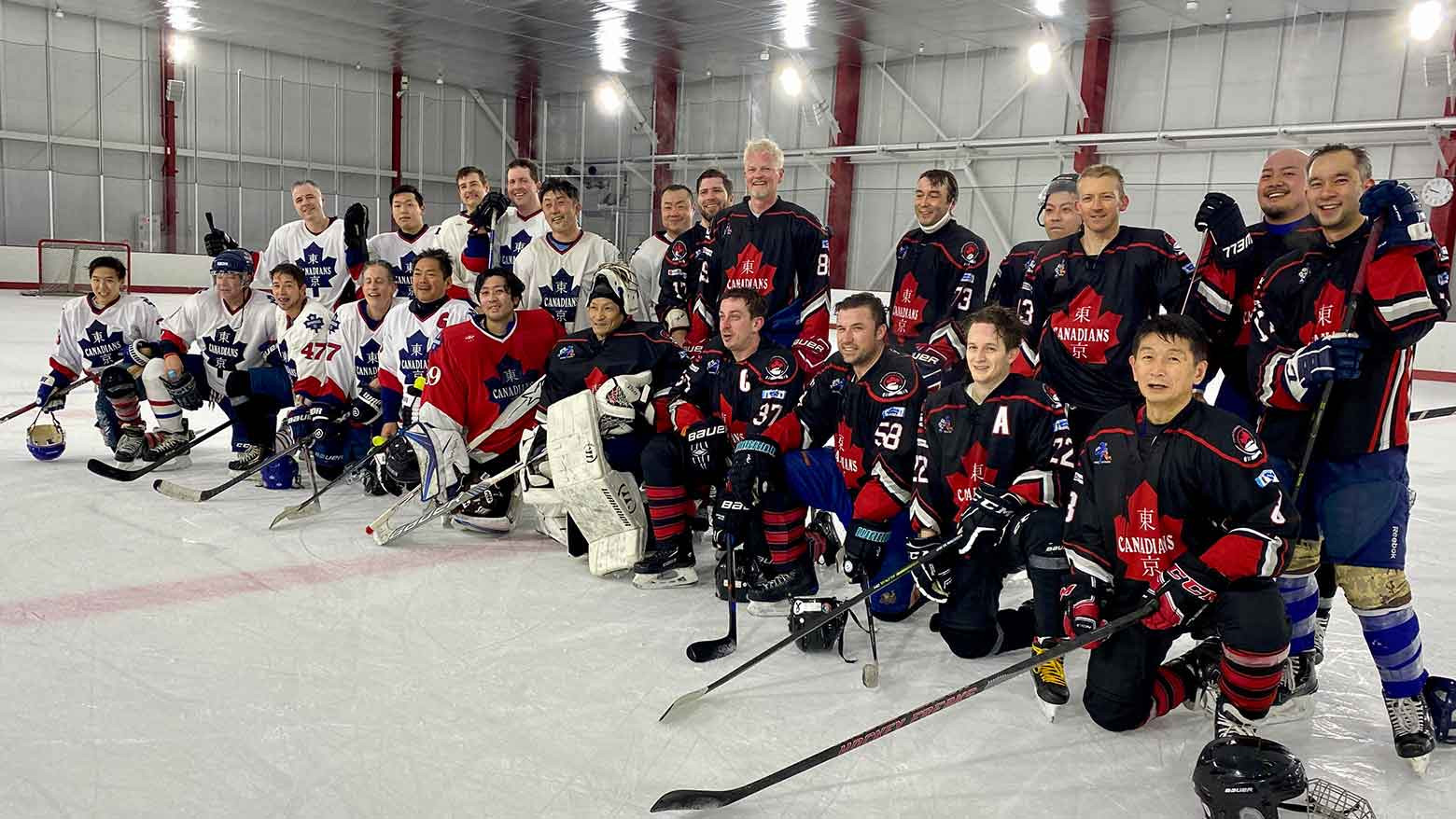Several hockey players file into a suburban ice rink complex carrying sticks and hauling hefty bags of gear. They drop them on the ground and start getting dressed for their Sunday practice game. Their red, white and black uniforms feature an instantly recognizable maple leaf logo.
It could be a scene right out of any town in hockey-crazed Canada, but this is half a world away in Funabashi, a roughly 45-minute drive from central Tokyo.
The team is called the ‘Tokyo Canadians’, and this is their 26th year as a hockey club. They started out as a small group of expatriates who rounded up Canadian players for games with some help from their embassy.
Today, their members are from a number of different countries, but they all share the same passion for hockey in a city where it’s not widely played.
“We’ve got a mix of Canadians, Americans, some local Japanese,” says Bobby Chung, a Canadian from Toronto who’s lived in Japan for 23 years.
“It feels good to have that little thing from home, so to speak. Playing hockey.”
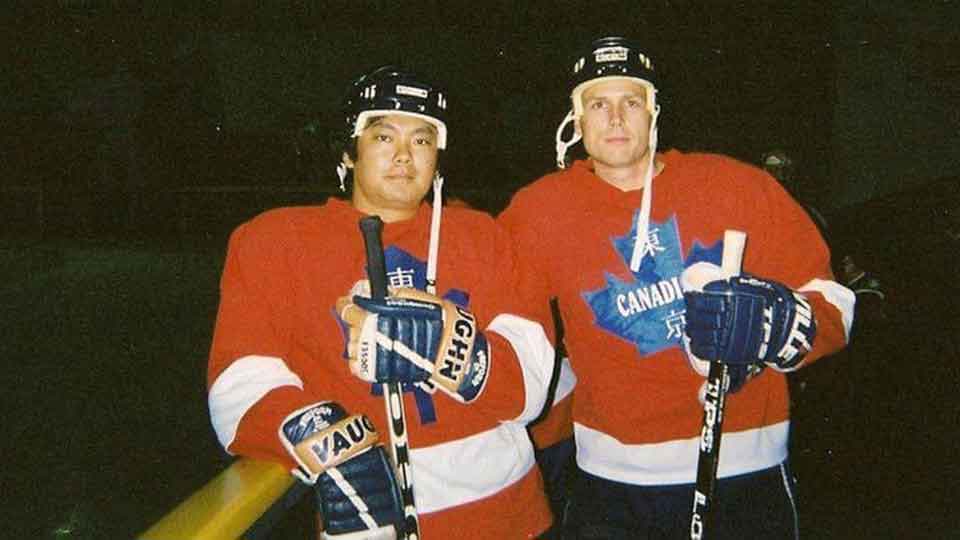
Their 40 adult players range in age, and they’re all competitive and experienced, but this is not professional hockey. The goal is just to play some games and to make connections.
The Canadians’ captain is Kevin Holt, an American who came to Tokyo 16 years ago. He says the team has become its own network for hockey players in Japan’s largest city, helping each other adapt to life in a new country, even connecting some of them with jobs.
“For me personally, when I came to Japan, I didn't know anyone, didn’t have any friends, any family, and the team became my family here in Japan,” says Holt.
“It's really just a community where everyone's trying to help everyone get ahead and survive here in Japan, our second home.”
More than just playing hockey
At the start, the club was focused on travelling and playing with other amateur men’s teams around Asia and elsewhere in the world, and also giving back in the places where they play.
Their hockey journeys have taken them to Finland, Singapore, Hong Kong, Malaysia, even North Korea, and they’ve spent time fundraising in Tokyo for causes in Japan and abroad.
After the devastating earthquake in northeastern Japan in 2011, the team rented a truck and drove to the region to help people start the process of rebuilding. In Thailand, they’ve played in charity tournaments, and sponsored kids at an orphanage.
“Part of it, the tournaments overseas, is to play in countries like Thailand, where we can actually make more of an impact, not just play hockey,” says Canadian Joji Hiratsuka, the team’s former captain and one of the original members of the team.
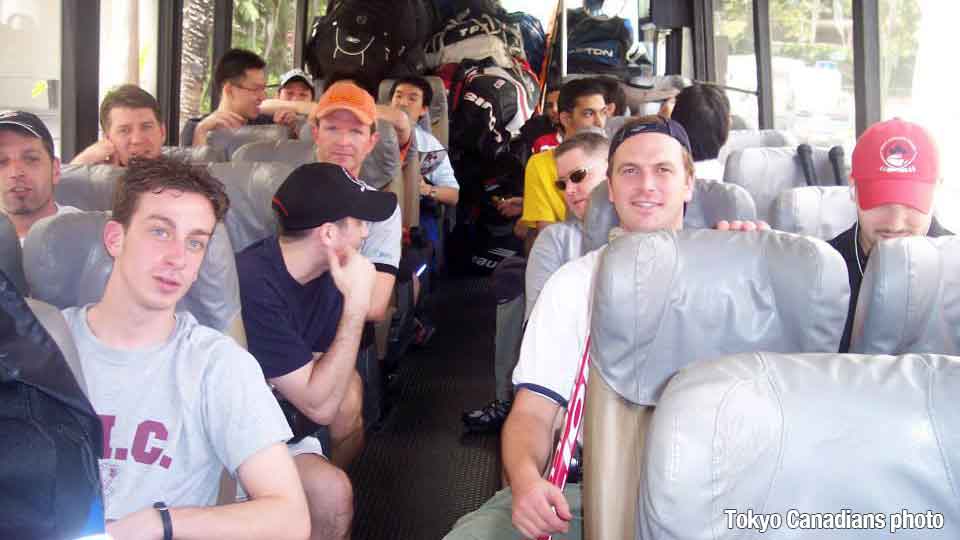
Since the start of the coronavirus pandemic, the Canadians haven’t been able to travel internationally as a team. So for the time being, they’re just getting on the ice around Tokyo as much as they can.
But even that has become a bigger challenge. Ice rinks in the city have become an endangered species since the team was formed.
They say a number of rinks they once played at have shut down or stopped operating, including at least two since the start of the pandemic. The ones that still exist are shared with other ice sports like figure skating, which are better-known in Japan, and renting ice for games is expensive.
“I guess the best thing that could happen for Japan for the hockey community is that there is a way to get more rinks to open and spread the game,” says Kevin Holt.
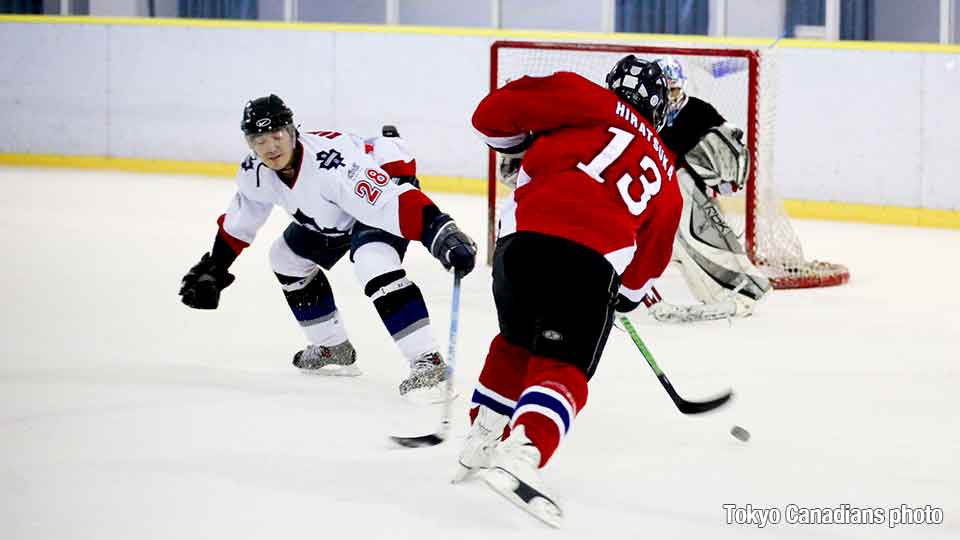
Hockey struggles to grow in Japan
The Canadians are far from the only amateur hockey team playing in Japan, but people involved with the sport say the number of players and rinks around the country has shrunk significantly over the past few decades.
Hockey may have hit peak popularity among Japanese people around the time of the 1998 Nagano Winter Olympics in Japan, when professional players battled for gold for the first time, and women’s hockey was first introduced as an Olympic sport.
Miyuki Sato, public relations chair with the Tokyo Ice Hockey Federation, says there were estimated to be around 30,000 registered hockey players in Japan in the late 1990s.
“Many kids started to play ice hockey but it wasn’t a major sport because of the cost. Ice rinks are expensive (to rent), equipment is expensive, and there aren’t many skating rinks compared to North America or Europe,” said Sato, who has played hockey since she was 15 years old.
According to a recent survey by the International Ice Hockey Federation, the number of registered hockey players in Japan dropped to 18,641 in 2019-2020. That’s still almost twice the number of Chinese players, but the IIHF survey says there are 537 indoor hockey rinks in China, compared to only 61 in Japan.
To put those numbers in perspective, it says hockey powerhouse Canada has 2860 indoor rinks, as well as an estimated 5000 places to play outdoors.
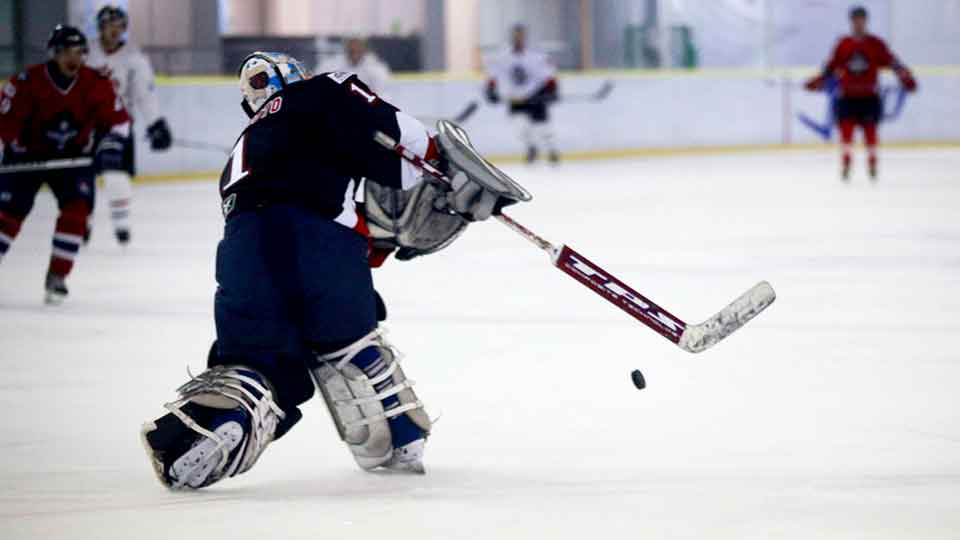
Sato says there were at least 12 rinks in Tokyo capable of hosting hockey games in Tokyo in the 1980s. Today, there are only 3 rinks in the entire city where the sport can be played.
She says one city-owned rink in Sagamihara, just outside Tokyo in neighboring Kanagawa prefecture, is on the verge of closing. She says residents have been collecting signatures for a petition to try to keep the facility alive.
“It’s a really frustrating situation,” said Sato.
“Tokyo is the center of Japan, and for other sports there are many facilities and opportunities, but in Tokyo the number of skating rinks has decreased.”
Sato says many companies decided to close private rinks in Tokyo because it was hard to turn a profit. She says the facilities tended to be in central Tokyo and were redeveloped into hotels, apartments, or shopping centres.
“Real estate is very expensive in Tokyo, so running the ice skating rinks is not profitable, I think. Switching to other businesses is more attractive for private companies,” Sato said.
Sato says over the past five years, an average of 3,500 hockey players were registered in Tokyo. She says having only three rinks they can use in the city has forced teams to practice or play very late at night, if they can even find ice time.
Promising signs for Tokyo hockey
But Sato also says there are also some promising signs for hockey’s future in the city and elsewhere in Japan.
Sato says the Tokyo Tatsumi International Swimming Center, the water polo venue at the Tokyo Olympics, will be converted into a year-round public ice rink. It’s scheduled to open in 2025. She says there are also plans to build or renovate new rinks in the Kansai and Hokuriku regions.

Sato also says she’s encouraged that Japan’s women’s national ice hockey team qualified for its third consecutive Olympics and are competing this month in Beijing.
“Young players have started to try going abroad to learn hockey and try to be on professional teams, so it's a very good tendency, I think it’s very positive,” said Sato, who points out that a growing number of players from Japan are also playing at universities in the United States.
Another big moment of inspiration for Japanese hockey came on January 25 this year and involved 26-year-old Yushiroh Hirano, who plays for the Abbotsford Canucks in British Columbia, Canada.
He became the first Japan-born player to score a goal as a professional hockey player in the American Hockey League, the primary developmental league for the world’s top teams in the NHL.
Hirano played high school hockey in Hokkaido prefecture before moving to North America to pursue a pro career.
Japanese skill returning from abroad
For the Tokyo Canadians, finding homegrown talent to stock their team hasn’t been difficult, thanks largely to the enduring popularity of hockey elsewhere in the world. About half of their players are Japanese people who have lived in Canada or the US, where they played the game at a high level before returning home.
“I had to find a way to play hockey in Japan since I came back,” said Shu Hayakawa, who was born in Japan but learned to play hockey in the Toronto area, where he spent his childhood.
“I find that in Japan, for virtually anything, there's a small community that does something about a specific thing, and hockey happens to be one of them as well.”
Others, like Satoshi Kumagai, represent a community of Japanese players who first learned to play hockey in snowy northern Japan, where hockey has a relatively stronger tradition. He lived in Canada for about 5 years, and still loves the game.
“Just the speed and physicality, lots of contact. I love fighting too,“ says Kumagai, who’s originally from Sapporo and has played hockey for 30 years.
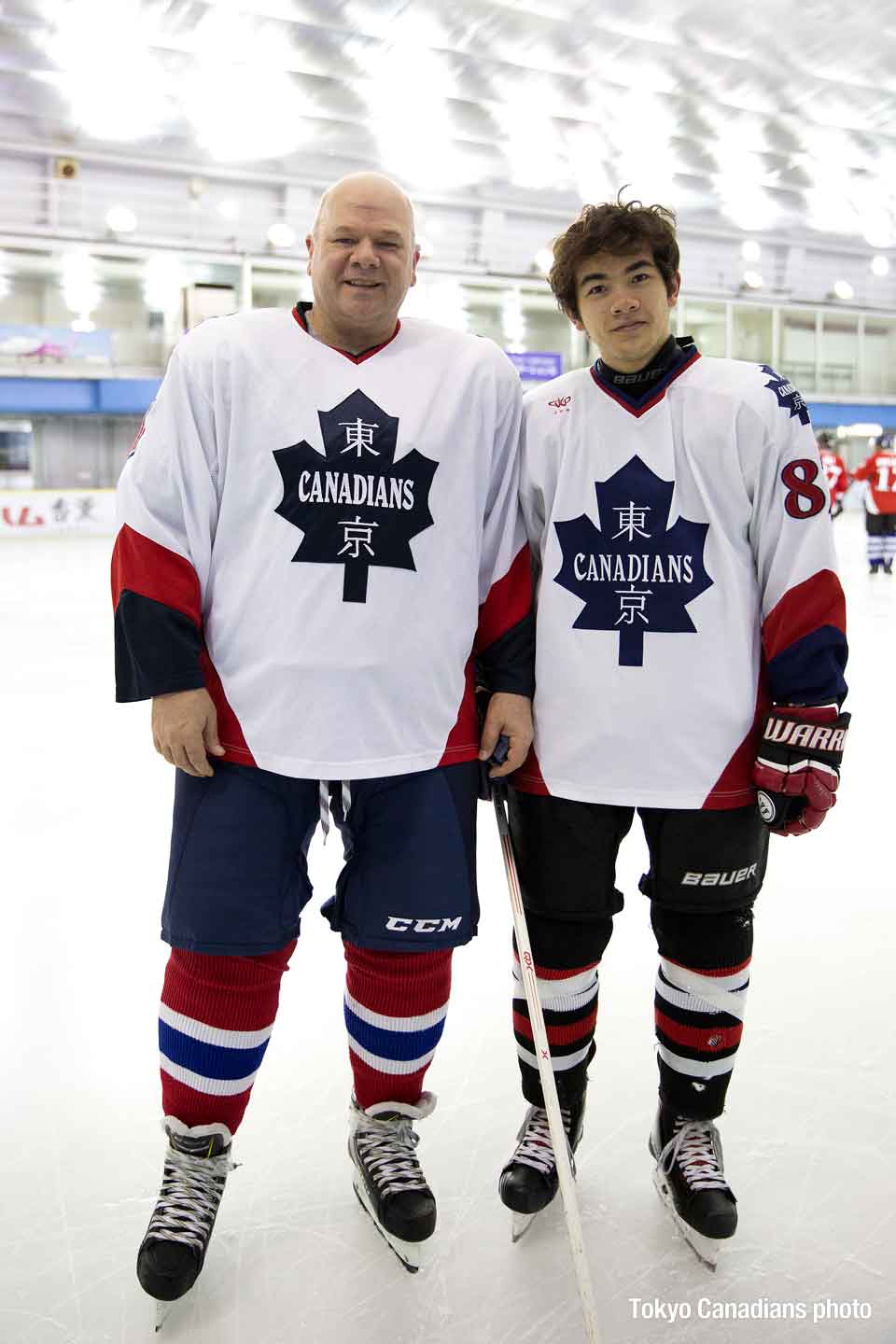
Even though fighting and bodychecking come to mind for much of the world when it comes to hockey, they are not part of the games the Tokyo Canadians play.
The biggest fight the team faces is to find new ways to strengthen the game in Japan. The Canadians organize games and tournaments around the country with other local teams, and they’re hoping to help grow the game among young people, at least on a small scale.
Some of their members have kids who were born in Tokyo, and they’re learning to play. One player has a son who’s now old enough to join their games. It’s another hopeful sign for Tokyo’s tiny but devoted community of hockey players.
“I think it’s one of those sports where once you get hooked on it, it’s hard to play other sports,” says Joji Hiratsuka, the team’s former captain.
“And I think maybe one day we’ll have more kids playing, I hope.”
